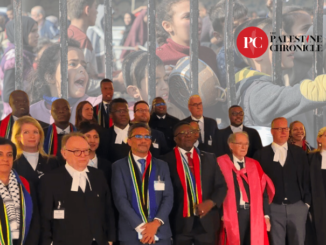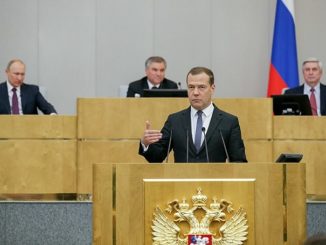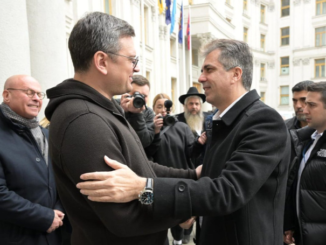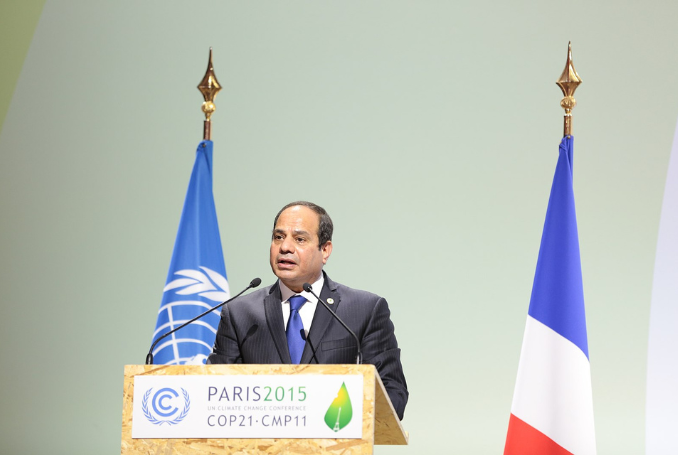
By Iqbal Jassat
Regrettably, most mainstream media has bolstered this faulty image, notwithstanding the fact that the regime of General el-Sisi is undoubtedly one of the most repressive in the world.
Has South African media been so consumed by the Putin arrest saga that it has overlooked Egypt’s problematic participation at the forthcoming BRICS summit?
Dignifying its military leader General al-Sisi with the expected red-carpet treatment will in effect be an endorsement of regime change via military coup, which is how Cairo’s despot overthrew the democratically elected Morsi government to gain power.
Incidentally, this month marks a decade since General Abdel Fattah el-Sisi appeared on TV in a military beret to announce the constitution’s suspension and the end of Mohamed Morsi’s presidency.
RSF (Reporters Without Borders) documents that as he spoke, security forces were preparing to storm the Cairo bureaux of the Qatari TV channels Al-Jazeera and Al-Jazeera Mubasher and arrest their journalists.
That same evening, Sisi’s military goons led a purge against many more media outlets and shut them down for allegedly supporting Mohamed Morsi’s party, the Muslim Brotherhood, and arrested their directors.
RSF’s research reveal that these events were just a foretaste of the purge that Sisi would wage against the media.
“In the past ten years, at least 170 journalists have been jailed, dozens of others have been arbitrarily arrested and interrogated, access to more than 500 news websites has been blocked and six journalists have been killed”.
Fault lines in the architecture of global politics are clearly evident in the way Egypt’s notorious leader is misleadingly endowed with a crown of honour and respectability.
Regrettably, most mainstream media has bolstered this faulty image, notwithstanding the fact that the regime of General el-Sisi is undoubtedly one of the most repressive in the world.
Rights organizations have painstakingly compiled reports that point to a catalogue of horrors, detailing terrifying conditions of abuse and cruelty.
Forced disappearances styled on America’s notorious “renditions”, extrajudicial executions, detention without trial, draconian secret prisons, persecution of opponents especially members and leaders of the Muslim Brotherhood, is routine.
Unsurprisingly the al-Sisi regime and its spin doctors will deny that such atrocities exist. However dissidents and others who have managed to flee, including families of prisoners and employers of renowned journalists facing uncertainty behind bars, testify to the reality of severe repression and denial of human rights.
Ricard Gonzalez, journalist and author who spent a number of years in Egypt, sketched the background to al-Sisi’s bloody rise to power.
“In 2013, a military coup put an end to Egypt’s democratic transition that began with the resignation of dictator Hosni Mubarak following a popular uprising that took place against the larger backdrop of the Arab Spring”.
Gonzalez confirms what is widely attested to by human rights organizations, that el-Sisi has since gone on to impose an authoritarian dictatorship even more brutal than that of Mubarak. All dissent is ruthlessly repressed and the regime’s security agencies have particularly targeted the Muslim Brotherhood, winner of the elections during the country’s brief democratic interlude.
A decade later, the bloodstained leader of Egypt’s extremely violent military coup, roams about the world as a respected “statesman” while thousands of anti-coup activists languish in jail.
Surely they, alongside fellow dissidents, would have the expectation that democratic countries such as South Africa as well as the African Union will not only raise concerns but also agitate for their freedom?
The likelihood of Egypt gaining membership of BRICS while el-Sisi remains at the helm of what’s best described as a military dictatorship, will also raise questions about the formation’s political orientation.
Concerns about Egypt’s participation while a veil has been drawn across the country to conceal el-Sisi’s notorious reign, cannot be denied.
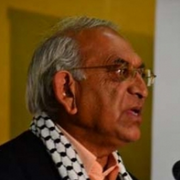
– Iqbal Jassat is an Executive Member of the South Africa-based Media Review Network. He contributed this article to The Palestine Chronicle. Visit: www.mediareviewnet.com



